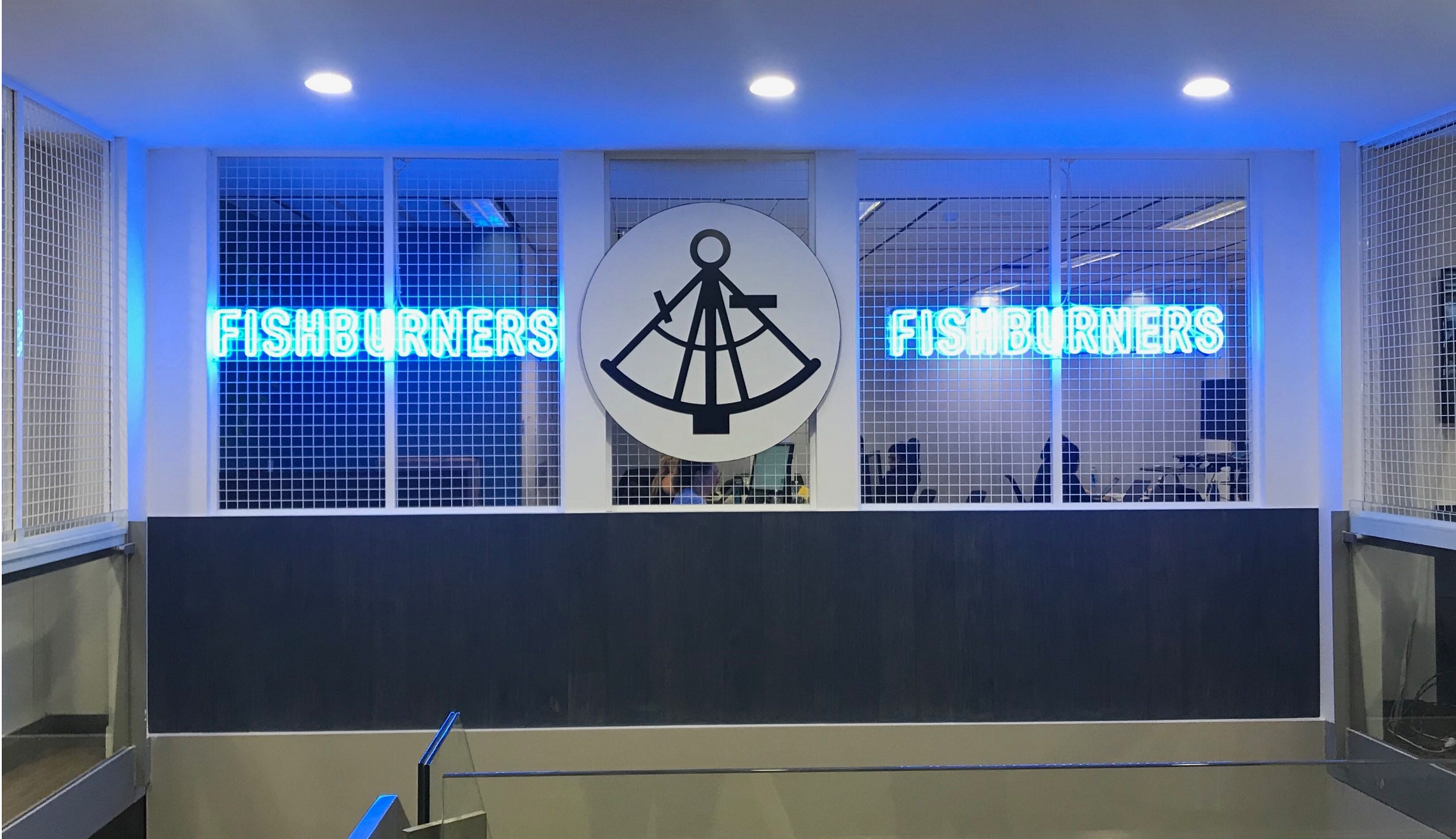Has Australia lost the startup bug? Fishburners doesn't think so

Australia-based startup co-working space Fishburners this year celebrated its seventh birthday by settling into its larger facility in Sydney, getting the nod to double its presence in Brisbane, standing up an offshoot office in Shanghai, and launching a virtual membership, allowing the non-profit to take in more budding entrepreneurs.
Despite the lull in fanfare around startups that the explosion of Uber and Airbnb brought with it a few years ago, Fishburners CEO Pandora Shelley would argue that the startup scene in Australia is thriving.
Fishburners has its name against 337 companies, including coffee-ordering app Hey You, startup survey firm Startup Muster, and graduate job hunting platform Grad Connection.
It was founded in 2011 by Mike Casey, who had returned from Silicon Valley and was frustrated that Sydney didn't have a startup ecosystem. He managed to convince Seed investor Pete Davison -- who was the first investor in PayPal -- to help him stand up the idea.
Fishburners considers itself "Australia's largest community of highly scalable tech startups", with Shelley believing it's the organisation's business model that has allowed for its success.
"We love making high impact -- we don't want to reinvent the wheel -- there's so many people doing great things, we'd rather connect people to those that are doing it well. But if we see a gap, that's when we try to fill it," Shelley said.
"When you come to Fishburners, you come for the community; you come because you want to build your tech startup. It's just a different offering and it's not for everyone."
Fishburners has a few different membership types, offering different levels of assistance.
The first criterion for joining Fishburners is having an idea that can scale through technology and not head count. The idea also needs to be validated, and not something that was just thought of as a new year's resolution.
"We find that a lot of people come in with one idea and exit with a different one. They meet someone, they team up, or they join a team," Shelley explained. "It's a building for startups, but it's also a building for talented people, and when you put talented people together that are all willing to take risks and are all innovative, then the magic happens -- as corny as it sounds.
"We are matchmakers, so we basically work out what their problem areas are, where they need to be connected to grow, and we can connect them ... we try and do as much as we can internally, as we are very community focused," she continued. "A lot is really driven by community. If I didn't have the membership and community I have, I'd probably have to double my team."
Shelley took helm of the organisation in January. She joined Fishburners six months in as a part-time receptionist while studying business at the University of Technology Sydney (UTS).
The new CBD-based office Fishburners moved to around 18 months ago is located in York Street at the Sydney Startup Hub, which is also home to fintech hub Stone & Chalk, media-tech incubator The Studio, Tank Stream Labs, the Future Transport Digital Accelerator, Microsoft ScaleUp Program, Caltex C-lab, and the office of the Department of Finance, Services and Innovation's Innovation NSW offshoot.
Fishburners has space for 650 people in the new facility, and Shelley said it's filling fast, with around 550 seats currently taken.
In Queensland, the organisation has backing from Brisbane City Council, and currently boasts around 150 members. Fishburners, however, just got allowance to double its Brisbane membership.
The offshoot office in Shanghai also has around 50 guests.
It is also beta testing a virtual membership that Shelley said takes everything except for the desk online, such as the streaming of events, discussion boards, and a resource centre, which also includes a directory of 750 members.
She said she receives a lot of interest from startups and entrepreneurs in rural Australia and other areas where Fishburners doesn't have a physical presence.
"Our goal -- we want to make sure that no matter where you are in Australia, you can still get resources from Fishburners without having to come to our co-working space," she said.
Fishburners is also partnered with Google for Entrepreneurs, Optus, UTS, and the New South Wales government's Jobs for NSW initiative.
As part of the UTS partnerships, 10 students have participated in a work experience pilot.
"[UTS] was telling me that 50 percent of their students wanted to start a startup ... our average age is 38, so there seems to be a gap here -- everyone thinks it's the young Mark Zuckerbergs working in a garage, it's very different," Shelley added.
Next on Shelley's agenda is working out how best to scale Fishburners and create more tech startups.
"80 percent of startups fail," she explained."We want to create the most successful tech startups in Australia ... obviously there's a small chance with how many will go into the funnel ... I'm trying to work out how we can increase the funnel as much as possible."
RELATED COVERAGE
134 startups aided through Australia's AU$12 million Landing Pad initiative
By the end of 2018, space for 270 startups would have been available.
CSIRO: Our science startups are better for the economy than techbros
CSIRO CEO Dr Larry Marshall points out the obvious: That startups are just small businesses, only with less media excitement.
4 lessons startups can learn from HBO's Silicon Valley (TechRepublic)
On Sunday, the Emmy-nominated HBO series premiered its first episode of season 4. Here are four of the major business takeaways from the spot-on satire of startup life in the Valley.
